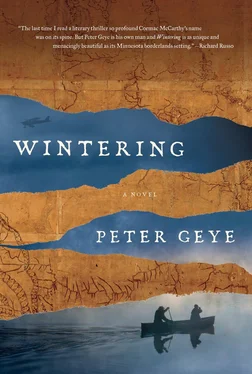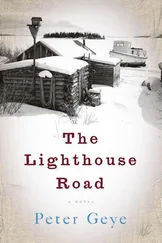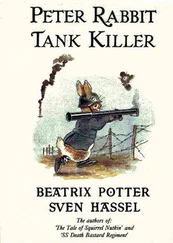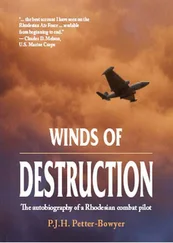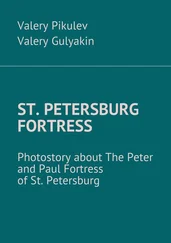Gus waved this thought away with the back of his hand. He tapped the postscript on the graph and said, “Besides, Thales was right, not Grimm. The human body is mostly water, after all.” He glanced at it once more. “Anyway, this”—he ran his fingertip down the column of soundings—“is the simplest sort of inquiry. It rains, the water rises. The snow in the hills melts, the water rises. The last days of a drought summer, the water’s lower. You don’t need to be a philosopher or a scientist to understand that. People have always mistaken Grimm’s fussiness for learning or wisdom. Fact is, he drew pretty pictures with one hand while he strangled people with the other. He was a crook and a bully. Just like Charlie Aas.”
Though I mostly shared his view, I said, “That sounds like an opinion your father might have helped you form.”
He smiled and put his big, warm hand over the back of mine. “There’s more intelligence — more truth —in my father’s book of maps than there is in the mighty Hosea Grimm’s archives.” He removed his hand and walked to the end of the counter and removed the lid from one of the three boxes stacked on the floor. “And certainly there’s more elegance. Mountains are only mountains if they’re mountains.”
“About any of that, you’d get no argument from me.”
“And still you’re busy cataloging his life.”
“Gus, honestly. He wasn’t the only person who lived here. His story isn’t the only one these walls hold. Furthermore, this place”—now it was me spreading my arms to encompass the apothecary altogether—“was, whether you want to see it or not, the centerpiece of this town for most of a century. Some might even say this building made a town out of Gunflint. This place and the Traveler’s Hotel. Otherwise, it was a fishing village. A place to load lumber or trade furs, nothing more.”
“Of course you’re right,” he said, but then paused and walked back to me. I was rolling up the graph, tying it with string. “But maybe,” Gus said, “if Hosea Grimm had spent a little more time measuring his own conscience instead of the river, my great-grandmother would have lived. Maybe Rebekah Grimm wouldn’t have gone daffy. That’s all I mean to say. Maybe things in Gunflint would have been different for a lot of people.”
“Should I be offended, Gus?”
“Offended?”
“If all of that had happened, you likely wouldn’t be standing here with me now, would you?” I smiled, and he did, too.
He put his hand over his heart and said, “How about I take you to lunch before I fill up with my other foot in my mouth?”
Turns out Gus came to town that morning with a relic of his own. We sat in a window booth at the Blue Sky Café and ordered coffee and he pulled from a letter-sized envelope an old composition notebook of the sort schoolchildren once used. The pages were so old and timeworn it seemed a sigh might turn them to dust.
—
That season on the borderlands began witchy. Snow piled knee-deep in the woods. The sun and moon in their orbits hung lower, just above the tree line, for shorter stretches each day, dawn and dusk fading through all manner of purple horizons, cold getting colder but only yet suggesting what surely would follow. The world seemed restless. And because their firewood was stacked high and the bear meat abundant in the cache, because Harry had built a three-foot-square box and lid to insulate the hole he’d kept open in the ice offshore, because they’d found their routines — for hauling water, cooking their food, stoking their fires — they fell into a kind of early-winter daze. Which in turn made Gus restless. After all, there were only so many games of cribbage they could stand, so many half-conversations, so many quiet hours reading the few books they’d brought along, so many songs he could play on his mandolin. So he went skiing.
Those first couple mornings he made circuits up and down the long lake. He reckoned it was about eight miles from the bay’s entrance to the southern end, and another three to the north. The winds that had dogged them for most of their time at the shack had abated, and in their absence a pair of gentle snowfalls had made the skiing conditions idyllic.
On those mornings his solitude was colossal and spectacular. The trees alongshore stood skeletal and shadowed and unalive. Even the green pines appeared black in the flat and sorry light. On certain moments during these tours he felt a kind of exultation he could liken only to the night he made love to Cindy Aas, moments when he felt so emptied and so full and so alone and so ready to push on, when he forgot where he was or who he was. Not in one of them did he care. Just the opposite was true. He thought that if the world ended he could go on here, even without the birds or the deer or the tracks of deer or the tracks of any other living thing. And there were moments when he forgot that he himself was a living thing, when the white plumes of breath that flowered with each push on his ski poles and each kick of his skis seemed more a part of cloudy sky than his own body — and these were the best moments of all, because it was then he could think without feeling foolish that it was all a dream. But he’d lower his eyes and see his own tracks from the days before unfurling and be reminded that he was not dreaming. That he was, in fact and against all odds, a part of that world.
After days of skiing only on the long lake he began venturing beyond. He’d wake in the morning before his father and, with nothing more than the field glasses around his neck, the pistol holstered on his belt, his father’s compass in one pocket of his army pants, and a shank of fried bear meat wrapped in cheesecloth in the other, he’d clip into his skis and pole south toward the rising sun, often meeting it before he reached the shoreline, and once there he’d sight a line into the naked winter woods.
Stripped and bare, the woods were easier to traverse than they had been on their route coming in. He could see the game trails and gully washes and vacant creek beds and he followed them, always with thoughts of his lonely night with the bear. But he was careful, and so despite his nagging fear he kept going. He found other lakes and streams and skied across them and still farther into woods. Hours and hours he would go, marking the day against its light, always ready to turn back on his own tracks with enough time to retrace them before dark.
Only when he returned and drank long from the pail of water and told his father about what he’d seen, only after he’d eaten his dinner of rice and bear, only after he sat with his cup of coffee and his mandolin unstrummed on his lap, did he realize how strong he had become, and how much stronger he could still get.
On this point he made sure I knew he wasn’t boasting. In fact, he was almost apologetic. But it was not an unimportant part of the story, he assured me, that he was filling into his flesh that season, that, by virtue of his paddling and sawing and carrying and skiing, he was developing a fitness that would have a real consequence for the story he was approaching.
One of those mornings he left earlier yet, the sky raining starlight. He skied the lake and into the by then well-trod break in the woods. He passed through the woods and onto the next lake and then another before the sun was up. He paused on the north shore of that third lake, his tracks from days before heading up the western slope. The land to the east rose sharply, and in the distance he could see a proper cliff jutting into the brilliant morning. The tracks and packed snow beckoned but instead he pushed into the untrod snow, hugging the shoreline still in shadow.
When he went into the woods at the end of that lake he did so without benefit of skis. He took one bearing with the compass and then looked for the earth to rise, which it did, as he did as well. After an hour he stood on the edge of the cliff, looking down on a lake beneath him. The wilderness spread before him in great, gray undulations. He reckoned he could see for thirty miles. Half of the distance home, if he were a bird. Even in the bright sunshine the world was dull and long and hopeless, and for the first time since he’d been in it he saw it for more than it was. For all that it was.
Читать дальше
